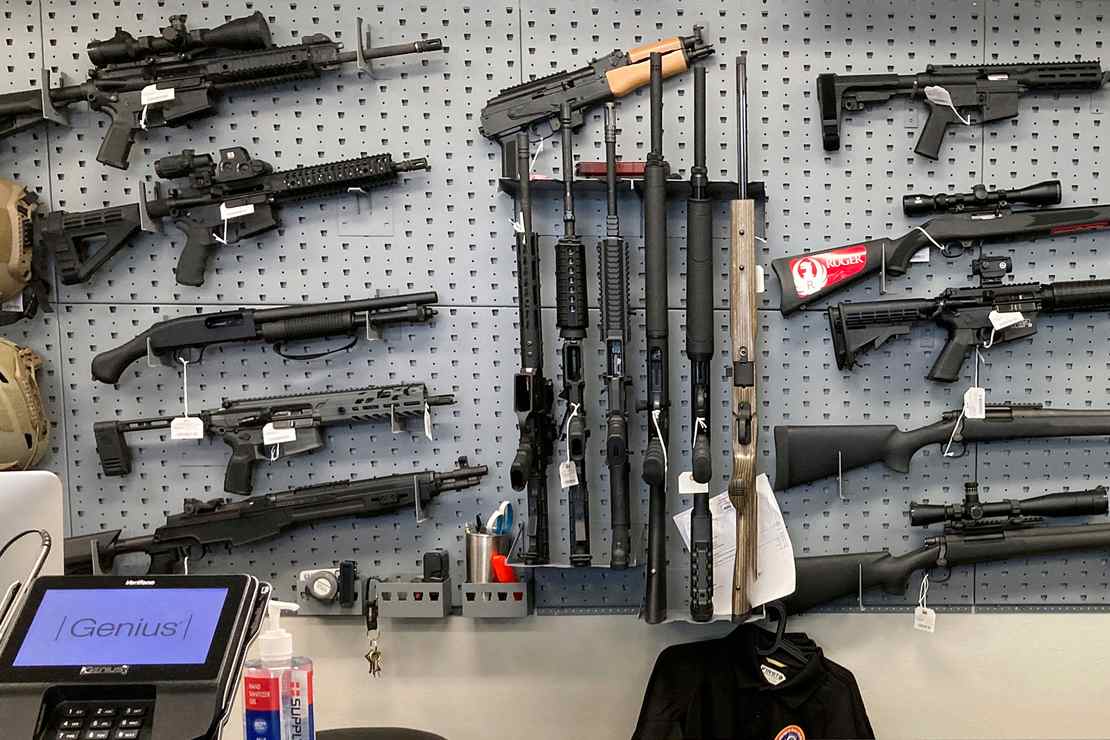
The opinions expressed by contributors are their own and do not necessarily represent the views of RedState.com.
The Second Amendment remains under attack, and it’s time for Congress to demand that “Fair Access to Banking Services” rules be re-prioritized by the banking industry.
Earlier on Saturday, my colleague Kira Davis reported that Wells Fargo cancelled the accounts of Del Ray, Florida-based Wex Gunworks. Reportedly, Well Fargo deemed the dealership, which supplies a full range of firearm services to Floridians, too risky for a banking relationship with the company. Of note to students of 2A politics, in the case of Wex Gunworks, is that it is a federally licensed NFA Class III dealer in machine guns and silencers, which are legal for Floridians to own. But gun control activists have been pushing ESG departments to act against companies, regardless of state law or business legality. Reportedly, Wells Fargo went further, and severed the personal accounts of owner Brandon Wexler as well.
According to a report in The Reload by journalist Stephen Gutowski,
Wexler, who has been cited in stories by the New York Times, Washington Free Beacon, CNN, ABC, and many more publications, said nothing had changed with his business. He said he believed the move by Wells Fargo was motivated entirely by animus against the gun industry.
“It feels like it’s a direct attack against gun dealers,” he said. “This all just happened recently, and we have been in business for many years. I’ve never ever seen anything like this.”
Except this isn’t the first time Well Fargo has been in the news doing this.
Back in July 2020, I penned an article on RedState titled “Wells Fargo Risks Reputation Over Private “Chokepoint” Policy Against Gun Industry,” noting that the bank was under scrutiny that it might be changing its stance on accounts with the firearms industry to follow the policies of what is known in policy circles as a privatized version of the discredited government initiative known as Operation Chokepoint.
READ RELATED: It's Official: Barbie Goes Transgender
This was when banks turned to adopting discriminatory Environmental, Social, Governance (ESG) policies that effectively redline certain impolitic industries, which includes the firearms industry, under the nebulous definition of “too risky to do business with.” My article at that time noted that in 2020, it was already official bank regulatory policy that financial institutions had been instructed to cease this type of business/industry redlining practice since 2015. But some banks chose to carry on with the practice, while being careful not to document the political reasons for cutting ties with a booming firearms industry. This article reported that a US Senate committee had expressed concern and was making inquiries to bank regulators as to why this practice was being allowed to continue.
By December 2020, I reported in my RedState article, “As Gun Industry Continues to Be Shunned by Banks, Regulators Move to Enforce Fair Access,” that the Office of the Comptroller of the Currency was responding to the call for fair access to banking services by the hampered industries and was in the process of issuing a new rule that would ban such practices. That rule was passed in January 2021 and was then put on hold, following the transition from the Trump to the Biden presidency.
This continuing hold on enforcing fair access enabled this latest incident to happen to Mr. Wexler’s company. I recently updated my coverage of this saga on December 25, 2022, in an article in America’s 1st Freedom, “The Financial War on Our Freedom,” which describes how some banks have continued to weaponize their ESG to attack politically incorrect companies. Mr. Wexler’s company became a victim of this ideology war around the same time the article was published, proving the concern remains a present danger and deserves attention by Congress and regulators in 2023.
It’s redlining when banks attack otherwise healthy businesses in economically robust industries and cause them to be less viable in the marketplace. Using the excuse that internal risk calculations by the bank as the basis for non-participation in a credit, lending, or account services relationship is the same excuse that some banks have used in the past to avoid establishing accounts or making loans to minority or impoverished communities.
When a bank does the latter, forces are set into motion where a government enforcement agency begins to compile evidence of a pattern of discrimination, eventually leading to enforcement actions and payments of fines or settlements, often amounting in the millions of dollars, as part of reparation of harm done.
Congress should demand the same type of aggressive enforcement for fair access principles in business credit and lending that the massive federal apparatus is doing for housing and community development. Impolitic or not, every healthy business is a vital part of keeping the US economy afloat, particularly during an inflationary and recessionary phase. Washington should be asking why the “Fair Access to Banking Services” rules that would punish banks for weaponizing their ESG departments against their customers are in a state of in limbo in the Code of Federal Regulations.
Trending on RedState Video
Source:






